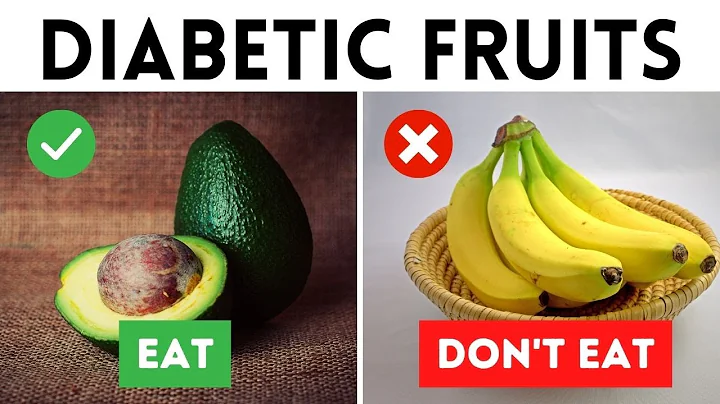Fruits contain a lot of sugar, which makes them more delicious.
However, if our blood sugar is high , it is not a good thing
!
What are the dangers of high blood sugar ?
How high does it take to be considered hyperglycemia?
How much impact does diabetes have on life?
Will you get diabetes if you eat too much sugar?
Is diabetes difficult to prevent?
...
let's learn about it together today!

The four major hazards of long-term high blood sugar
- Harm the human body's immunity
- Harm the human blood vessels
- Harm the body's nervous system
- Harm the body's normal metabolic system
Blood sugar standards

Expert reminder: Fasting blood sugar damaged and sugar Abnormal tolerance , also known as prediabetes ! Although it is not yet considered diabetes, it can easily develop into diabetes without intervention.
According to International Diabetes Federation (IDF) statistics, the number of people suffering from diabetes in my country has reached 110 million, with a prevalence rate of 10.9%, making it the country with the highest diabetes prevalence in the world.

What is diabetes?
Diabetes, as a common chronic disease, is a metabolic syndrome characterized by elevated blood sugar. In addition, patients are often combined with hypertension , hyperlipidemia, obesity, etc.
There are many pathogenesis mechanisms of diabetes, which can be summarized as the lack of insulin secretion and the decrease of insulin sensitivity . Up to now, the exact pathogenesis of diabetes is not completely clear. In other words, the mechanism of reduced insulin secretion and decreased insulin action has not been fully revealed. There may be many reasons behind it, such as genetic factors, environmental factors, lifestyle and Work pressure, etc.

What are the symptoms of diabetes?
The typical symptoms of diabetes are "three more and one less", that is, dry mouth drinking a lot of water, urinating more and eating too much. "One less" mainly refers to weight loss and lack of physical strength. The symptoms of
It is not easy to detect diabetes. If you do not pay attention to controlling blood sugar after discovery, it will lead to more adverse consequences and complications, Listed from head to toe:
Increased chance of cerebrovascular disease, fundus lesions and even blindness The risk is high, and the risk of heart disease morbidity and mortality, kidney disease and uremia incidence, peripheral neuropathy increase, diabetic foot, gangrene and amputation risks are also significantly higher than those of non-diabetic people.
Will eating sugar cause diabetes?
Many people think that diabetes is caused by eating too much sugar or staple food, but this is not the case.
is actually caused by eating too many high-calorie foods such as high fat, resulting in excessive total calorie intake. Therefore, it is unbalanced and incorrect to blindly reduce or even eliminate staple foods and switch to a diet of vegetables and meat. Overall, the intake of high-calorie and high-energy foods should be moderately reduced.
Can diabetes be prevented?
Primary prevention : High-risk groups for diabetes— Lifestyle intervention can reduce the incidence of diabetes. Lifestyle interventions include eating a healthy diet and staying active. People at high risk of diabetes should keep their mouths shut and their legs open to delay the onset of the disease as much as possible and achieve early detection and intervention.
Secondary prevention : Patients who have already developed the disease - Closely monitor blood sugar and seek medical treatment regularly. Through active and effective intervention and treatment, the occurrence of cardiovascular and cerebrovascular diseases , diabetic nephropathy , diabetic retinopathy and diabetes can be prevented as much as possible. Foot and other complications.
Tertiary prevention: Patients who have already suffered from diabetes, have a long course of disease, and have complications - A reasonable treatment plan can delay the progression of complications and reduce the risk of disability and death.
In principle, experts recommend that people over 40 years old, especially those with a family history of diabetes, actively participate in screening. If abnormalities are found through a home blood glucose monitor, you should promptly go to the hospital for a glucose tolerance test to confirm whether you have diabetes.

Five small habits to easily manage blood sugar
① Adhere to medication
This is the most basic measure to manage blood sugar. Do not stop hypoglycemic drugs or reduce the dosage at will to prevent ketoacidosis and other acute complications. occur.
② Blood sugar monitoring
Regular monitoring of blood sugar can detect blood sugar fluctuations in time, thereby avoiding acute complications caused by high and low blood sugar. For patients taking oral medication, it is recommended to monitor fasting or 2-hour postprandial blood glucose 2 to 4 times a week. For those using basal insulin, it is recommended to monitor fasting blood glucose in the morning ; for those treated with premixed insulin , it is recommended to monitor fasting blood glucose in the morning and before dinner.
Generally speaking, fasting blood sugar should be controlled at 4.4~7.0mmol/L, and postprandial blood sugar should be controlled at 10mmol/L; glycated hemoglobin<7.0%.>
③ Eat reasonably
Reduce the amount of staple food by 5% to 10% at each meal than usual, try to ensure the intake of milk and beans, appropriately increase the intake of high-quality protein and vegetables such as fish and poultry, and reduce fat meat and processed meat products intake. Pay attention to regular and quantitative meals, chew slowly, drink soup first (as little as possible), then eat vegetables and protein-rich foods, and finally eat staple food. In addition, it is also recommended to drink 1500~1700ml of water every day. It is recommended to drink boiled water and light tea and limit alcohol consumption.
④ Exercise
Regular exercise can increase insulin sensitivity, improve body composition and quality of life, help control blood sugar, reduce cardiovascular risk factors, and has a significant primary prevention effect on people at high risk of diabetes.
recommends reducing sedentary time and integrating beneficial sports into daily life, such as walking in place, Ba Duan Jin , Tai Chi or yoga and other low-to-medium intensity exercises.
⑤ Maintain a good attitude
Excessive depression, anxiety, and irritability will cause blood sugar to rise. Patients with excessive long-term mood swings will have an increased difficulty in controlling blood sugar and an increased risk of complications. A healthy psychology and adequate sleep can enhance human immunity, reduce the chance of viral infection, and are important for blood sugar stability.
(the pictures and texts are from the Internet, if there is any infringement, please contact us for deletion)





















